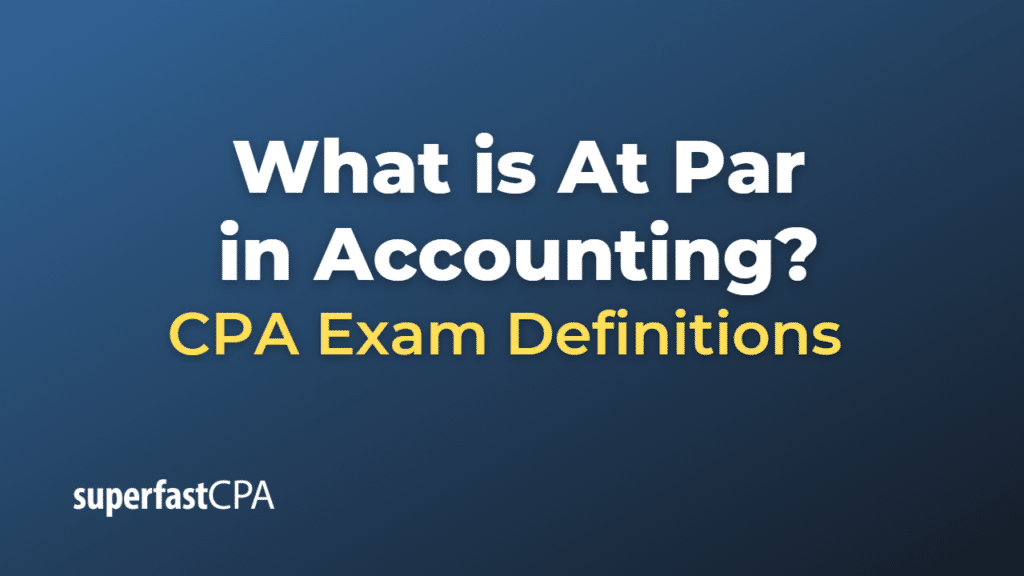At Par
“At par” in accounting refers to a financial instrument, such as a bond or stock, being traded or issued at its face value or nominal value. Face value, also called par value, is the amount stated on the financial instrument itself. When a bond, for example, is said to be trading “at par,” it means the bond’s market price is equal to its face value.
In the context of bonds, the face value is the amount that the bond issuer agrees to pay the bondholder upon the bond’s maturity. When a bond is issued at par, the interest rate on the bond is equal to its yield, which is the return an investor can expect to receive from holding the bond until it matures.
In the case of stocks, par value is often an arbitrary value assigned to a share by the issuing company. Stocks can also be issued or traded “at par” when their market price is equal to their par value, although this is less common and less relevant than it is for bonds.
Example of At Par
Let’s consider a bond example:
Suppose Company ABC issues a bond with a face value of $1,000 and a coupon rate of 5%. This means that the bond pays $50 in interest annually ($1,000 x 0.05). If the bond is issued “at par,” investors would purchase the bond for its face value, which is $1,000.
Now, let’s assume that market interest rates remain stable, and the bond continues to trade at par throughout its life. This means that the bond’s market price remains equal to its face value of $1,000. In this situation, investors who buy and hold the bond until maturity will receive the annual interest payment of $50 and the face value of $1,000 upon the bond’s maturity.
In the case of stocks, let’s say Company XYZ issues shares with a par value of $1 per share. If the stock is issued “at par,” investors would purchase the shares for their face value of $1. However, it’s important to note that stock prices typically fluctuate based on market conditions and company performance, so the concept of trading “at par” is less relevant for stocks than for bonds.













